Trains canceled, planes grounded, and highways blocked by farmers are a rough start to the year for the German economy.
Europe’s largest economy and the world’s fourth largest is entering 2024 on a rocky note. A strike by Lufthansa ground staff this week is the latest in a month of transport chaos. Earlier, rail drivers stopped work in a pay dispute. Farmers protested on the highways against planned subsidy cuts.
According to CNN , widespread strikes in a country known for its strong protection of workers' rights show that the instability is pervading Germany. The economy contracted last year and the outlook is not much brighter. The International Monetary Fund (IMF) predicts that Germany will be the slowest growing major economy in 2024, at just 0.5%.
More pessimistic experts also expect GDP to shrink for a second consecutive year, as the economy struggles with a prolonged period of high energy prices, rising borrowing costs and weak demand for "Made in Germany" goods at home and abroad.
"Uncertainty is delaying the recovery because it increases consumers' propensity to save and reduces companies' and households' willingness to invest," said Timo Wollmershaeuser, head of forecasting at the Ifo Institute.

Kurfuerstendamm shopping district in Berlin, Germany, December 18, 2023. Photo: Reuters
The lingering impact of the energy crisis caused by the Ukraine conflict was further revealed on Wednesday (February 7), when data showed industrial production fell for a seventh straight month in December 2023, the longest such decline on record.
Exports fell 4.6% in December from November, more than the 2% decline forecast in a Reuters poll. Klaus Wohlrabe, head of the Ifo Institute's survey department, said exporters needed new impetus. "Germany's export economy got off to a worse start in the new year," he said.
But Germany's problems are also structural , from labor shortages and bureaucracy to outdated physical and digital infrastructure that hurts productivity, according to CNN. Digital capabilities, for example, are limited: Only 19% of German households have high-speed internet access via fiber optic cable, compared to an average of 56% across the European Union, according to a report by the European Commission.
So what is needed, economists say, is nothing less than an economic overhaul for Germany. Marcel Fratzcher, president of the German Institute for Economic Research in Berlin, says the country needs a fundamental economic transformation. "The biggest challenge for Germany is not the next two years, but the next 10 years, when it comes to reshaping its industry," he says.
The government has taken tentative steps. It has encouraged investment, increased funding for startups, accelerated approvals for infrastructure projects and eased immigration rules for skilled workers to address labor shortages.
More needs to be done, but German politicians have limited power, including a strict constitutional limit on public debt that could constrain big spending. Carsten Brzeski, global head of macroeconomics at Dutch bank ING, said it would be almost impossible to implement any reforms to the German economy if fiscal austerity remained the dominant trend.
The next challenge is the economic model. Germany has long been one of the world’s leading manufacturing nations, making everything from cars, washing machines and power tools to medical equipment and pharmaceuticals. It has excellent engineers and many high-quality goods, but cracks are starting to show.
Constanze Stelzenmuller, director of the Center on the United States and Europe at the Brookings Institution, said the country was suffering the consequences of its "strategic bet on total interdependence and globalization."
“They outsource their security to the United States, their growth through exports to China, and their energy needs to Russia,” she said. As a result, Germany now finds itself extremely vulnerable to great power competition.
Slowing economic growth in China – Germany’s second-largest export market – has reduced demand for imports. Fundamental changes in the Chinese economy mean demand may not return. “China has become a rival. They can now produce the same goods they used to import from Europe,” said ING’s Brzeski.
That fact alone threatens Germany’s biggest export: cars. China’s auto exports are set to overtake Germany’s in 2022, thanks to the astonishing rise of its electric car brands, most notably BYD. That’s a problem not just for the darling of German manufacturing, Volkswagen, but for thousands of companies in the German and European auto supply chain.
Meanwhile, the US – the top destination for German exports since 2015 – has shifted to protectionism, subsidizing domestic producers of green energy and climate-friendly products under the Inflation Reduction Act. “Like the rest of the German economy, exports remain at the crossroads between recession and stagnation,” said Carsten Brzeski, head of global macro at ING.
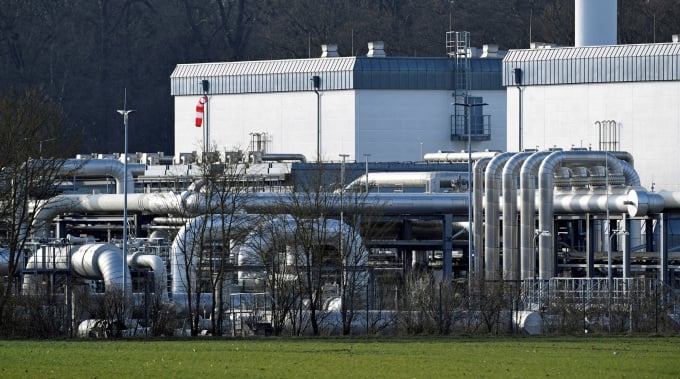
The Astora gas terminal in Rehden, Germany, March 16, 2022. Photo: Reuters
Domestically, a spike in gas prices in 2022 following the conflict in Ukraine and continued high prices in Europe have crippled many German industries. The country is particularly dependent on gas, having completely halted nuclear power generation following the 2011 Fukushima disaster in Japan.
As the external environment becomes increasingly unfavorable for Germany’s outward-looking economy, the internal political climate is also becoming increasingly suffocating. Tensions within the three-party ruling coalition are hampering policymaking, adding to uncertainty for businesses and leaving many Germans feeling that the current government has few solutions to the country’s myriad problems.
Some CEOs who rarely comment on politics have also warned about the threat that right-wing extremism poses to the economy. Deutsche Bank CEO Christian Sewing said it was a “serious danger” to the business environment.
Investors who have been attracted to Germany are hesitant to deploy capital, according to Christian Sewing. The heads of software company SAP and chipmaker Infineon have also spoken out.
Despite the challenges, Germany remains a major strength, leading the world in many industries. It continues to attract foreign direct investment, including semiconductor manufacturers such as Intel and TSMC. It is home to thousands of domestic manufacturers renowned for their expertise and innovation.
Among them is Hamburg-based Jungheinrich, which makes forklifts and other warehouse equipment. Last year, the 70-year-old company became one of the first forklift manufacturers in the world to ditch internal combustion engines by pioneering lithium-ion battery technology.
Or MAN Energy Solutions in Munich is repurposing compressors – typically used to transport oil and gas – for large-scale carbon capture projects and building the world's largest urban heat pump system in Esbjerg, Denmark.
Companies like these could find new markets and applications for their know-how, helping to revive the German economy. Many smaller companies are also making the switch, including those that previously served the traditional auto manufacturing supply chain.
Karl Haeusgen, president of the German Machinery and Equipment Manufacturers Association (VDMA), which represents mostly small and medium-sized companies, said that seven or eight years ago no one was thinking about battery production. Today, they have more than 100 member companies focused on different steps of the battery value chain.
“The strengths we have in many engineering and manufacturing technologies remain leading and unique, and I really believe in the ability of companies to adapt to the changing global environment,” said Karl Haeusgen.
Phien An ( according to CNN, Reuters )
Source link



![[Photo] "Beauties" participate in the parade rehearsal at Bien Hoa airport](https://vstatic.vietnam.vn/vietnam/resource/IMAGE/2025/4/11/155502af3384431e918de0e2e585d13a)


![[Photo] Looking back at the impressive moments of the Vietnamese rescue team in Myanmar](https://vstatic.vietnam.vn/vietnam/resource/IMAGE/2025/4/11/5623ca902a934e19b604c718265249d0)









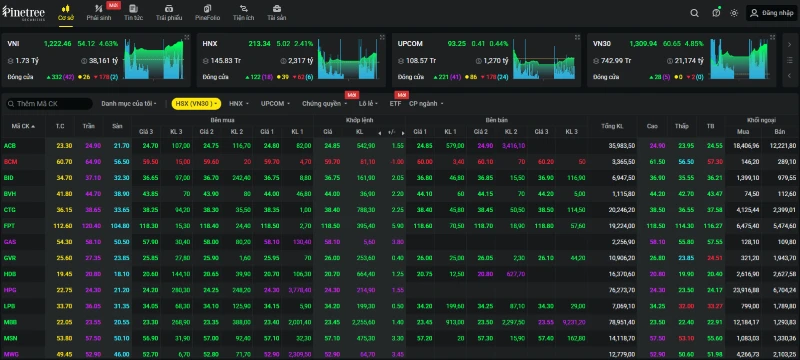
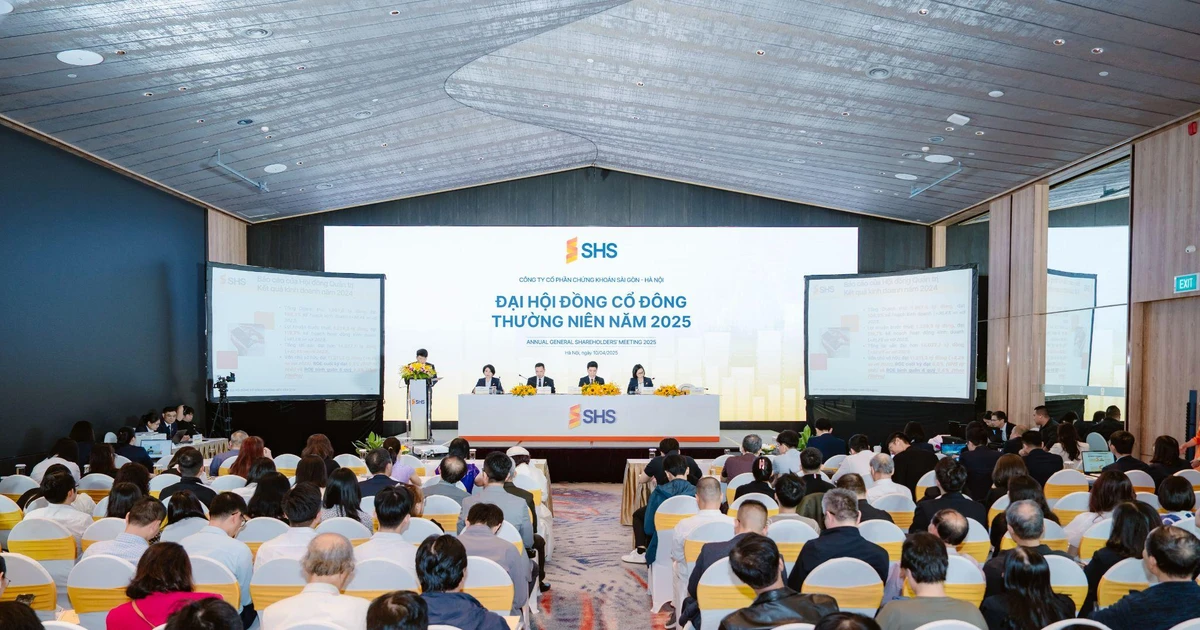


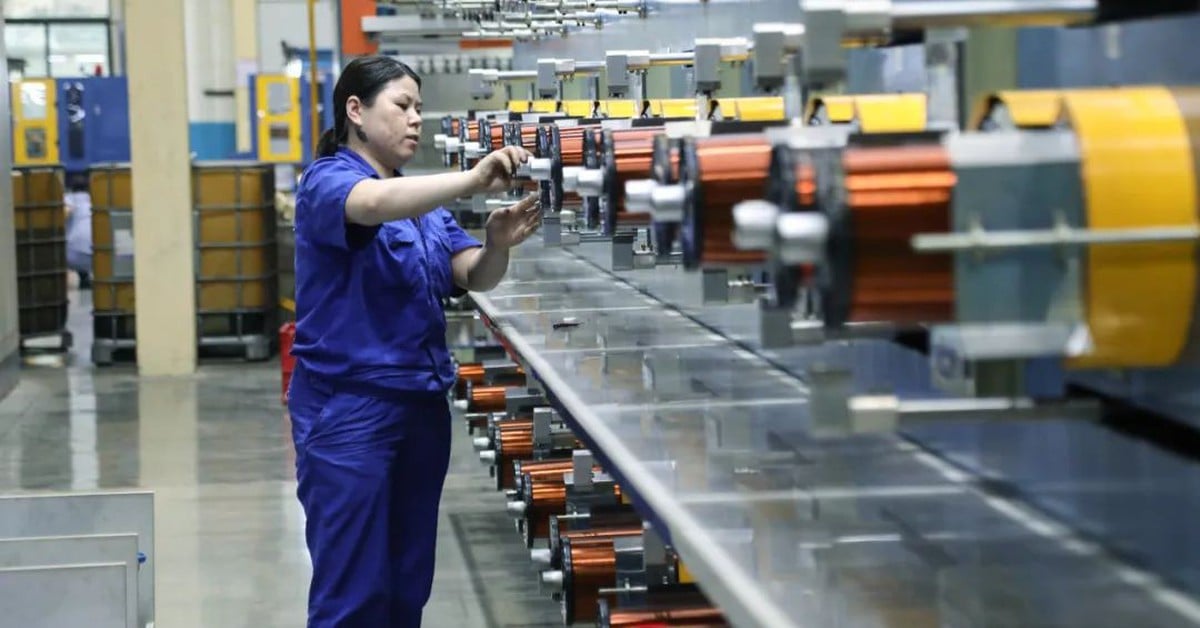










![[Photo] Summary of parade practice in preparation for the April 30th celebration](https://vstatic.vietnam.vn/vietnam/resource/IMAGE/2025/4/11/78cfee0f2cc045b387ff1a4362b5950f)










































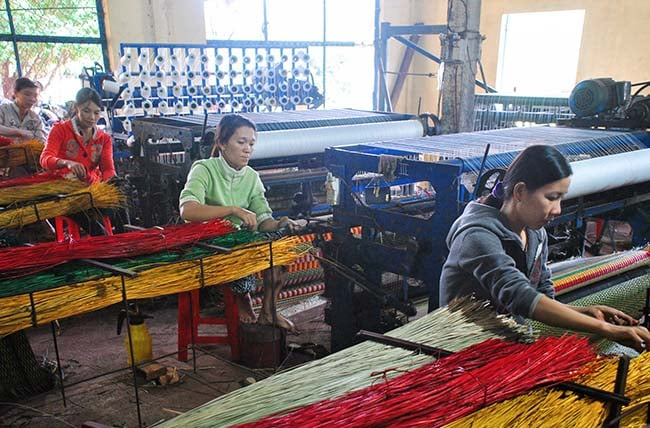

















Comment (0)